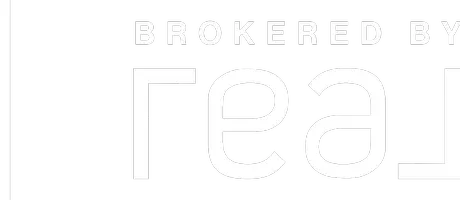
Moving to DC in 2023: 7 Things You Need to Know About
If you're considering a move to Washington, DC in 2023, there are several important factors to keep in mind. In this edition of Coffee with Coleman, real estate agent John Coleman shares valuable insights into the changing landscape of the city. From its evolving identity to weather patterns, transportation infrastructure, traffic challenges, cost of living, culinary scene, and the city's appeal to Generation Z, here is a comprehensive overview to help you navigate your move to the nation's capital. 1. An Evolving Identity DC has experienced significant changes recently, both due to the pandemic and its ongoing fight for statehood. The city has seen population fluctuations, with some people leaving and others moving in. Furthermore, discussions surrounding statehood have become a prevalent topic of conversation among residents. Being prepared to engage in these conversations will help you better understand the city's dynamics. 2. Weather DC's weather varies depending on where you're moving from. If you're from the north, expect warmer temperatures, while those from the south may find the winters colder. The city's two standout seasons are fall and spring, boasting pleasant weather and attractions like cherry blossoms. Summers can be hot and humid, while winters are generally mild, with occasional snowfall. 3. Transportation Infrastructure DC continues to invest in its transportation infrastructure. The metro system is expanding, with new stops and lines being added. Commuters and fitness enthusiasts will appreciate the growing number of bike lanes, offering safer alternatives to driving. However, be cautious of drivers who may not always follow road rules. 4. Traffic Challenges DC's traffic is notorious and ranks as one of the worst in the nation, trailing closely behind Boston. Congestion is a daily reality for residents. Additionally, the city has ramped up the use of traffic cameras to enforce violations, resulting in substantial revenue from fines. It's important to drive attentively and be aware of the potential consequences. 5. Cost of Living Living in DC comes with a high price tag. The average cost of living is 53% higher than the national average, with housing costs soaring 114% above the national average. While higher wages somewhat offset these expenses, be prepared for the significant financial commitment required to reside in the city. 6. Culinary Scene DC's food scene is vibrant and ever-changing. Known for its diverse range of cuisines, the city offers everything from high-end dining experiences to ethnic eateries. While the pandemic has led to the closure of some beloved establishments, it has also created opportunities for new businesses to emerge. Embrace the city's evolving food culture and support the culinary entrepreneurs shaping its future. 7. Appeal to Generation Z DC is attracting the younger generation, with a significant influx of Gen Z individuals choosing the city for education and career opportunities. Their presence brings energy and fresh perspectives to the city, ensuring its continued growth and vitality. DC remains an exciting destination, even during potential economic downturns. Moving to DC in 2023 presents both challenges and opportunities. Understanding the city's evolving identity, weather patterns, transportation infrastructure, traffic concerns, cost of living, culinary scene, and appeal to Generation Z will help you make informed decisions as you embark on your DC journey. Embrace the city's unique characteristics, immerse yourself in its vibrant culture, and get ready to experience the nation's capital like never before.

Six Mistakes to Avoid - Must Read for First-Time Home Buyers
Certainly the goal for many home buyers is to find their dream house and have a splendid life making memories in it. But if you are a first-time home buyer, you may end up making some mistakes that result in heartbreak. To prevent that, we have compiled some of the most common mistakes people make when buying a new home. 1. Underestimating Maintenance Mortgage and interest payments are straightforward and are what initially come to mind when thinking of purchasing a home. However, you will also have to pay money to keep up the house. You will have utilities and there are a number of other things that need to be factored into your monthly payment that are outside of the mortgage payment. So be sure to take this into consideration. 2. Overly Expensive Mortgage An expensive mortgage is something you need to think through. You're probably going to qualify for more money than you should be spending. So the recommendation I make is to find a monthly budget that you're comfortable with and then make your way from there. If you have this number, it will make it so much easier to stay in budget to make sure that you're not house poor. 3. Not Hiring An Agent At The Right Time Sometimes people walk into an open house and fall in love. In a weak moment, we’d hate for you to pick an agent based purely on desperation - which is why we recommend creating a relationship on the forefront of your search to avoid a stressful and potentially painful outcome on the backend. Trust is a BIG piece of crafting your offer in a speedy situation. 4. Not Learning The Process It's highly recommended to learn the home-buying process before you get started. We personally like to sit down with our buyers and go through our home-buyer roadmap to help them understand expectations from start to finish. We help them understand when payment is due, what it’s for, and when they're expected/not expected to do things. Just knowing the basic elements helps people feel so much more relaxed. It’s best to know what you’re doing when you’re doing it, and why it’s important. 5. Being Unaware Of All Options It's a terrible mistake not to look through all of the mortgage options and all of the first-time homebuyer purchase options. Since there are so many things to go through, it's helpful to talk with your lender. Maybe you need to do a fixed-rate loan, or maybe you need a variable rate loan. How long you intend to own the property is certainly going to make a difference. 6. Focusing Too Much On Details There are things in a house you can ALWAYS change. Paint...carpet...appliances...etc. However, there are functional pieces of a house that will never change and need to be considered a little more closely. This can include layout, location, size, etc. I like to focus more on the latter as I understand over time you can fix all the things in the former category (for the right price). A good agent should be able to help you price out normal changes in real-time OR set you up with a contractor for larger-scale projects. Did I miss anything? Check out my YouTube channel for more value-packed content. P.S. If you are looking for a house in DC, there are a ton of programs that you can utilize. I’ve made a video about some of them. So be sure to check it out! It's super helpful to save money, especially when buying your first home. Cheers, John Coleman

The Cost of Living in Washington, DC
Well, clicking on this post was a good move. What about figuring out the cost to live in Washington, DC? Scroll on, because we've got you covered. To get things started, Washington, DC, is not a cheap city. So if you are coming to DC, you need to have your expectations set right about what the cost is going to be. Most people don't know that it's one of the top 15 most expensive cities in the world to live in. Maintaining Lifestyle You might be curious to know a little more about the standard of living. First, let's find the difference in cost from where you currently live and DC. To make this easy for you, there's a link down below to an online tool that calculates what that difference in cost is. I moved to DC from Detroit a decade ago. So, as an example, if I made $50,000 a year in Detroit, I would need to make about $82,000 a year in DC to maintain the same standard of living. I would encourage you to use that data as an advantage when negotiating a contract with a new company. Let them know it would cost a lot more for you to maintain the same standard of living when moving to DC. Different Parts, Different Prices You should also consider that different parts of the city are priced differently, so the cost calculated will not always correspond to every part. Generally, a 1000 sq.ft. condo with 2 bedrooms will cost you about $3,200 in rent. It can be much pricier in a neighborhood like Georgetown, while relatively cheaper in areas like Langdon or Brookland. So it really depends on the area you are looking for. Another tool for finding the average price of utilities is linked down below. Now, let’s look at milk. In DC, a jug of milk will cost you around $3.42. Here is a list of other common food items to give you a better idea on DC prices: Other interesting ones to know about: The average price per sq.ft. is about $550. The average house for sale is about $615,000. Utilities like gas, water, and electricity for that 1000 sq.ft. condo would cost you around $130 a month. The average metro ride is $2.50 per ride. (Just so you know, transportation in DC is great. The public transit system goes all over the city and into parts of Maryland and Virginia) Finally, the gold standard, a McDonald's McMeal is about $8. More Questions? Did I miss anything? If you want to know more, don't hesitate to reach out. Shoot me a message or give a call! I’m always happy to help. Cheers, John Coleman
Categories
Recent Posts











